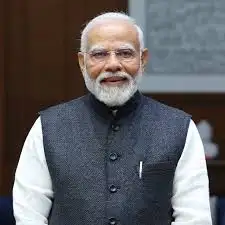Under the leadership of Prime Minister Narendra Modi, the Union Cabinet has approved a proposal for simultaneous elections across India, harmonizing the electoral schedules for the Lok Sabha and state Assemblies. The decision, announced by Union Minister Ashwini Vaishnaw on Wednesday, follows months of deliberation and a report submitted in March by a high-level committee chaired by former President Ram Nath Kovind.

The committee’s report, presented before the Cabinet, outlines a detailed roadmap for implementing the ‘One Nation, One Election’ plan. The proposal suggests conducting simultaneous elections for the Lok Sabha and state Assemblies in the first phase, followed by synchronized local body polls within a 100-day timeframe. The aim is to streamline the electoral process and reduce the frequency of elections, which are currently staggered over multiple years at different levels of governance.
This initiative is also seen as a cost-cutting measure, potentially easing the financial and administrative burden of frequent elections. Prime Minister Modi, a strong advocate of the plan, highlighted the disruption caused by recurring elections in his Independence Day address earlier this year. “Constantly holding elections is hindering the nation’s progress by diverting focus and resources away from crucial developmental initiatives.” Every scheme or initiative is linked to elections, as polls take place every three to six months,” Modi said, calling for an end to these interruptions.

The ruling Bharatiya Janata Party (BJP) has made this policy a key pledge in its manifesto for the 2024 general elections. While the proposal has garnered support within the BJP, it remains uncertain how other political parties will react. Congress President Mallikarjun Kharge has voiced his opposition, stating, “We don’t support this. “The concept of One Nation, One Election poses signific ant challenges in a democracy, where diverse regional interests and local issues demand tailored electoral processes.”Elections must be held as needed to ensure democracy’s survival.”
The panel’s recommendations include 18 constitutional amendments, most of which will not require ratification by state Assemblies but will need to be passed by Parliament. Some changes, such as the implementation of a single electoral roll and voter ID system, will require approval from at least half of the states.
The Law Commission of India is expected to release its own report on the subject in the near future.